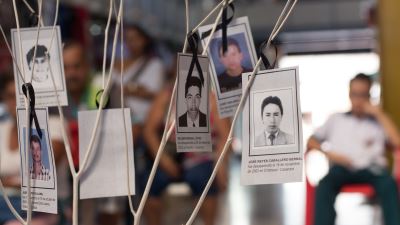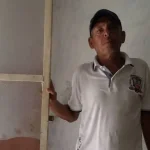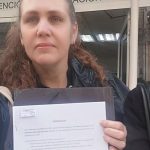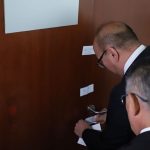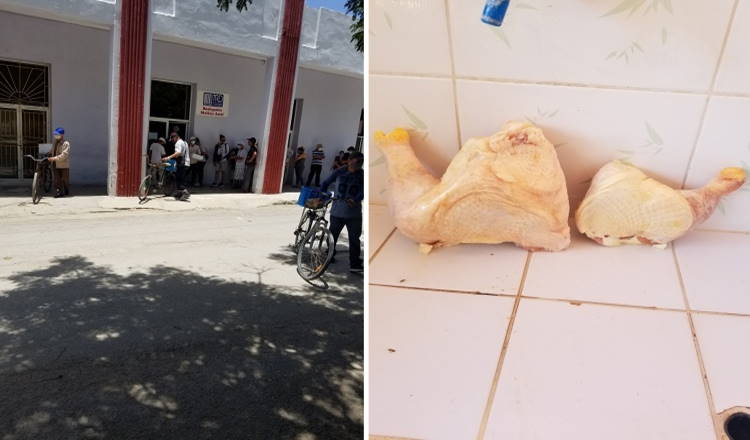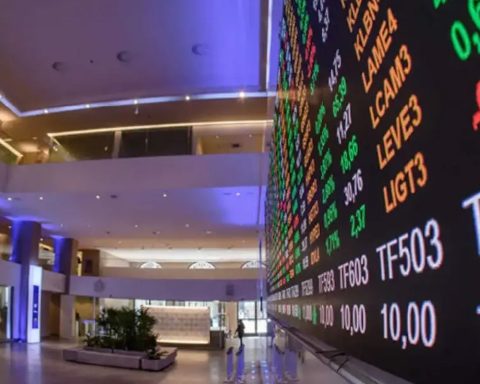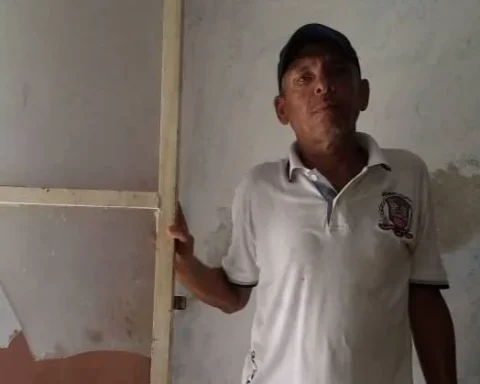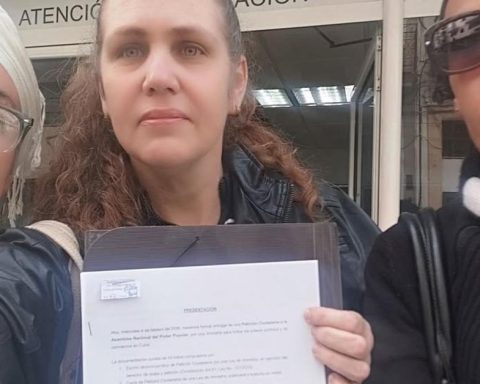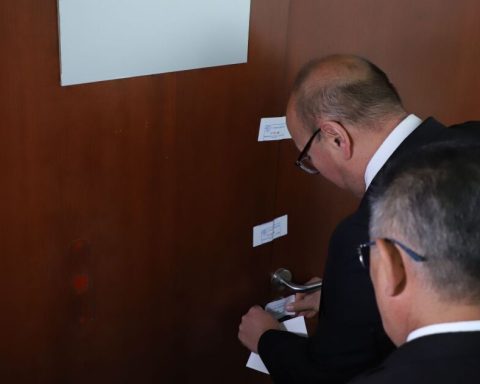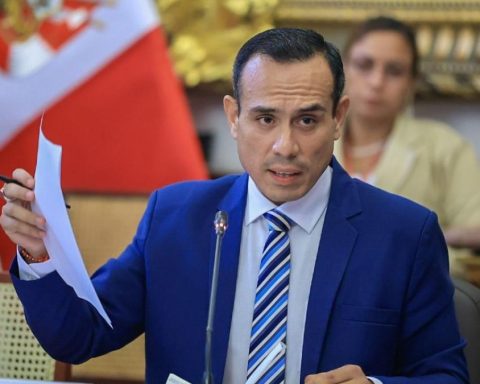The Colombia broken into pieces that left more than half a century of armed conflict was recovered by the Commission for the Clarification of the Truth, Coexistence and Non-Repetition, which over more than three years put these fragments together to prepare the painful report that it will present to the country on Tuesday.
This organization is part of the Comprehensive System for Peace, which also includes the Unit for the Search for Persons Given as Disappeared (UBPD) and the Special Jurisdiction for Peace (JEP)and began its arduous task on November 29, 2018 with the aim of delivering a report on the conflict three years later, on November 28 last year.
Also read: Nicolás Maduro will seek the union between Colombia and Venezuela in the government of Gustavo Petro
Nevertheless, Last October, the Constitutional Court extended the mandate of the Truth Commission for seven months, as had been demanded by victims of the conflict who warned about the limitations imposed by the covid-19 pandemic and the health emergency ordered by the Government to deal with it.
Join us in the virtual transmission of the presentation of the Final Report of the @ComisionVerdadC
Tomorrow from 11:00 a.m.
Connect on YouTube and activate the notification: ▶️ ? https://t.co/VMQVdC8gsM
Also on Facebook, Twitter and Instagram. pic.twitter.com/t0D9O4RHSR
— Truth Commission (@CommisionVerdadC) June 28, 2022
The report
In the act of November 2018 with which the activities of the Commission began, its president, the Jesuit priest Francisco de Roux, stated: “Here, we are equal, committed and honored, the commitment to respond (…) with the clamor of millions of Colombians who, in the territory and in exile, ask for the truth about what happened to them in the conflict, about what happened to us as a society”.
That day he remembered that The report that they will present has the mandate to clarify and promote the recognition of practices and events, particularly massive ones, that constitute serious violations of human rights, as well as to establish collective responsibilities of the State, its Governments and public powers; the institutions and organizations, and the armed actors that took part in the conflict.
You may be interested in: Injuries increase due to tragedy in the corralejas in El Espinal
The Spanish doctor Carlos Beristain, one of the truth commissioners, assured in an interview that The report that will be presented has two parts.
The first is the process that the Commission has carried out during its mandate: “We have been practically three and a half years in a listening exercise in many parts of the country, also in that Colombia outside of Colombia, because in 24 countries we have been taking testimony”.
The @ComisionVerdadC He will leave a legacy that seeks to generate a positive commotion that mobilizes Colombian society towards an imaginary shared future focused on reconciliation. #ThereIsFutureIfThereIsTruth
June 28 | 11 a.m. | Presentation of the Final Report pic.twitter.com/0f0egZAIgp
— Truth Commission (@CommisionVerdadC) June 27, 2022
“That report is going to tell what that process has been that we have also learned along the way about this reconstruction of the truth. The Commission has carried out more than 500 social dialogue initiatives throughout the country, throughout the world, we have carried out acts of acknowledgment of responsibility that are also different from former members of the FARC as well as from members of the Army and paramilitaries,” he said.
The second face is the research work, reflected in the 10 volumes that will be presented on Tuesday to the country and the international community.
“It has a historical part, it has a part that focuses on human rights violations – we have to account for the 13 points of the Commission’s mandate. There is another section that recounts the impacts that all this has left on society, on the victims, what consequences the war has brought, what social and political fractures have also occurred in the country.“, he detailed.
More information: Environmental leader follower of the Historical Pact was assassinated in Granada (Antioquia)
He also pointed out that the report includes specific problems of ethnic groups, women and the LGBTIQ+ collective, as well as children and exiles.
“The Commission’s report, in a country where so much has been written and so much research has been done, tries to give an account of this exercise of listening and tries to collect that diversity of experiences, those bits of truth that inhabit so many stories that the Commission has heard and tries to make an inclusive vision”, he valued.
commissioners
The peace agreement signed in November 2016 by the Government and the then FARC guerrilla says that to carry out its work, this body is made up of 11 commissioners: De Roux, Beristain, Lucía González, Alejandra Miller, Ángela Salazar, Patricia Tobón, Marta Ruiz, Alejandro Valencia, Saúl Franco, Alfredo Molano and Carlos Guillermo Ospina.
However, Commissioner Salazar, who stood out for being a defender of the rights of women, banana workers and domestic workers, died of covid-19 on August 7, 2020.
Also read: More than 30 families were evacuated in Ciudad Bolívar (Antioquia) due to damage to their homes
In his replacement, Leyner Palacios was appointed.one of the most recognized social leaders in Colombia and who represents victims of the municipality of Bojayá (west), which suffered one of the bloodiest massacres of the armed conflict on May 2, 2022, in which at least 86 people died in a FARC attack.
We are one day away from the presentation of the #Final report and we want you to join the symbolic mobilization for Colombia with the ‘Call for Truth’ #ThereIsFutureIfThereIsTruth
More info.?https://t.co/MT42qUEdrM
Tuesday June 28 | 11 a.m. | Final Report Presentation pic.twitter.com/kquAZ3dZCx
— Truth Commission (@CommisionVerdadC) June 27, 2022
Commissioner Molano, one of the leading investigators of violence and armed conflict in the field, also passed away on October 31, 2019 of cardiac arrest due to cancer.
In his place, Alejandro Castillejo Cuéllar was appointed in April 2020, an academic from the National University who is a specialist in development and peace.
However, the Truth Commission did not complete its mandate with all its members because retired Army Major Carlos Guillermo Ospina resigned last month, considering that he was being “stigmatized” because of his vision of the armed conflict.
More details: They find a human head inside a garbage bag in Cali
“There is no longer room for me because in the Truth Commission there is an accusation, a stigmatization, about my person,” Ospina said in an interview with Noticias RCN after submitting his resignation to De Roux.
The statements of the retired elder reflect some of the criticism that the Truth Commission has received by sectors that consider that they have not been heard by this body.
Despite this, thousands of people, both victims and perpetrators and third parties, turned to the Commission with the hope that their contributions would be useful for the publication of a report that picks up the pieces of a broken Colombia who wants to see himself in the mirror so as not to repeat the violence of the past.
